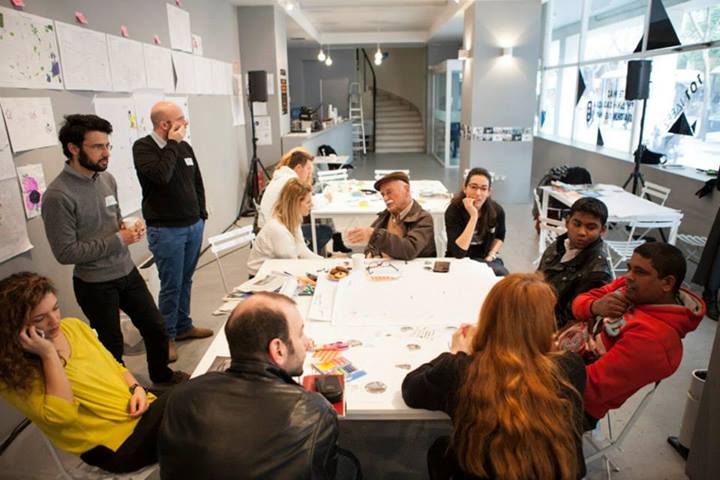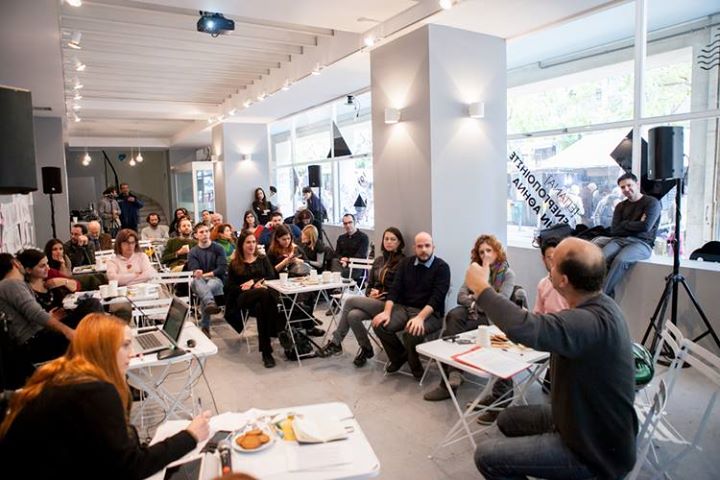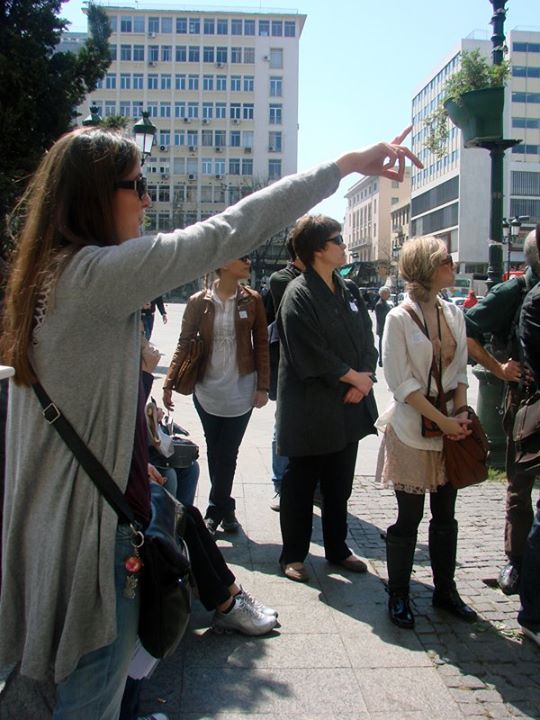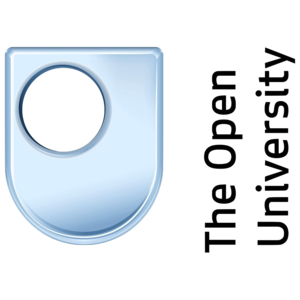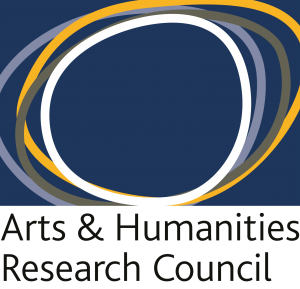Towards a more active citizenship: Some examples of research and design initiatives in Athens
The last 4 years the city of Athens has undertaken major transformations in its urban, social and economic environment on one part as a consequence of the economic and social crisis, on the other part as a result to the increase of the cultural and ethnic diversity of the Athenian population. In view of these transformations different research bodies (universities, nonprofits, and independents researchers) devoted themselves to rigorous research on the complex urban issues facing Athens.
Some projects are more analytical than others whereas most of them tried to formulate proposals for specific areas of Athens deploying either top-down or bottom up approaches. In absence of any kind of participatory tradition in the management of city issues in Athens some initiatives tried to actively engage the residents to their projects either as co-designers, or as contributors, players and narrators. Below I will try to describe 4 different initiatives that took place between 2010-2014 in Athens which also used different bottom-up approaches.
The research bodies that implemented the following projects and in which I actively participated are:
- “Reactivate Athens Lab”: a research and design initiative from ETH Zürich, Urban-Think Tank, and experts and collaborators from various fields in Athens.
- SARCHA (School of Architecture for All): a nonprofit organization devoted to research supported and carried out by an extended assemblage of associates.
The projects are:
- Reactivate Athens / 101 Ideas: a crowdsourcing platform for ideas.
- CityCommonResource: mapping the resources of the Gerani Area.
- Polypolis: a role-playing social game for the city of Athens.
- Athens Travelers: individual narratives turned into city itineraries.
Reactivate Athens / 101 Ideas
The goal of the Reactivate Athens / 101 Ideas project was to generate 101 provocative ideas for central Athens. These ideas combine top-down and bottom-up processes in order to utilize the territory between the formal and informal as a new point of contact for architecture and social design in the city.
The multidisciplinary team critically analyzed the urban core to develop a new framework for reading and acting within the city, highlighting the social and cultural diversity of central Athens while serving as the basis for innovative and implementable proposals.
A dynamic platform to collect ideas from existing initiatives, leading experts, local community members and the general public was established. The platform included a physical space the “RA LAB Workshop”, a website , workshops and events.
The RA Lab Workshop:
The RA Lab Workshop at the center of the city (Athinas Street) served as a meeting point and center for actions, events, and discussions. This vacant ground floor at 67th Athinas Street was transformed into a communication center between the research team and the people of Athens. Open to the public 5 days per week people could come in the workshop, get informed about the RA initiative, see the progress and the material of the research, and share their ideas and views for the city of Athens by filling a questionnaire or through personal interviews with the research team members.
Because of the continuous presence of the research team, and the simple aesthetics of the space, numerous individuals, groups of people and families became regular visitors actively contributing to the research and formulation of the 101 ideas. The RA LAB Workshop acted as a friendly, political neutral space where everybody without any exclusion could express their views, discuss issues affecting their everyday life, and share their ideas about the future of Athens.
The total number of people visiting the Workshop was estimated at around 1000 people between November 2013 and March 2014. The visitors of the space come from a range of social, economic and ethnic backgrounds.
The website:
The website played the most important role in the dissemination of the RA initiative by hosting a questionnaire, with questions about the city of Athens, to fill and submit online. The online questionnaire gave the opportunity to people outside the geographical boundaries of Athens to participate in the research. Questionnaires were submitted from various cities in Greece, Europe, and as far as Australia, Japan and Armenia.
Workshops and events:
Each month the space hosted a series of events showcasing the work of the initiative and providing a forum to collect and discuss the ideas of local residents, experts, community groups. In this context two workshops were held with different groups and communities:
1. “The RA meets with the creative groups of SynAthina”
In collaboration with the SynAthina platform (managed by the municipality of Athens to support the actions of citizen groups in the city) a workshop was held during which citizen groups / NGOs and nonprofits, presented their work, discussed their ideas for central Athens, and investigated opportunities for further collaboration.
2. “Participatory Process in Design Development”
In the end of January a workshop on exploring participatory methods was held. The day of the workshop started with a closed design workshop with members of immigrant communities of Athens. The participants in collaboration with the research team members drew their daily itineraries in the city highlighting important issues of the city, proposed ideas, and presented different ways of appropriating the city. An open discussion was followed with a panel of experts and community leaders on participatory design.
The objective of the two workshops was to connect with targeted communities and groups of people that have a deep knowledge of the city and to explore opportunities for collaboration. The workshops were held as experiments since the duration of the RA initiative could not make possible a more systematic approach and collaboration.
Events in public spaces:
The research team was present in a series of public spaces such as Victoria Sq., Kotzia Sq. and inside the Omonia Train Station in order to inform the people about the RA initiative, to invite them to the RA LAB Workshop and to discuss with them ideas and views for their neighborhoods.
Methodology:
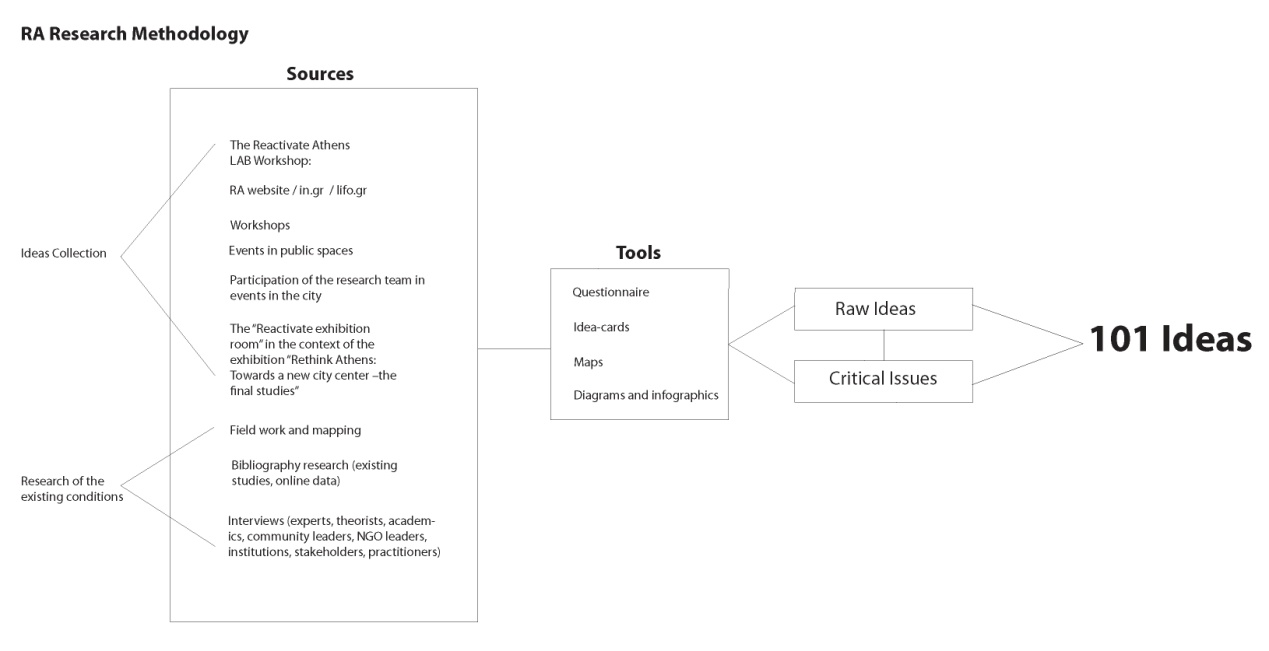
The ideas-collection process was combined with a field research on the existing conditions in Athens in order to analyze, combine and design the final 101 ideas. A number of different research tools were selected such as questionnaires, ideas-postcards for the ideas-collection and maps, diagrams and info graphics for the field research.
All tools were used simultaneously; as a result issues emerging from the discussions with the people were infused in the field work, and issues emerging through field work were discussed in the everyday communication with the people visiting the RA Lab Workshop.
The 600 unique ideas, 3500 questionnaires and 1000 visits in the RA Lab Workshop in a period of 4 months shows the great respond of the Reactivate Athens initiative from the city inhabitants. We are now in the process of publishing the final 101 ideas with all the research material in Greek and English.
In this limited time frame, the RA initiative tried to create a vision on how a research and design program about the city can be implemented through an open dialogue with the people and the different communities of the city.
CCR CityCommonResource: Athens_Gerani 2010 pilot study
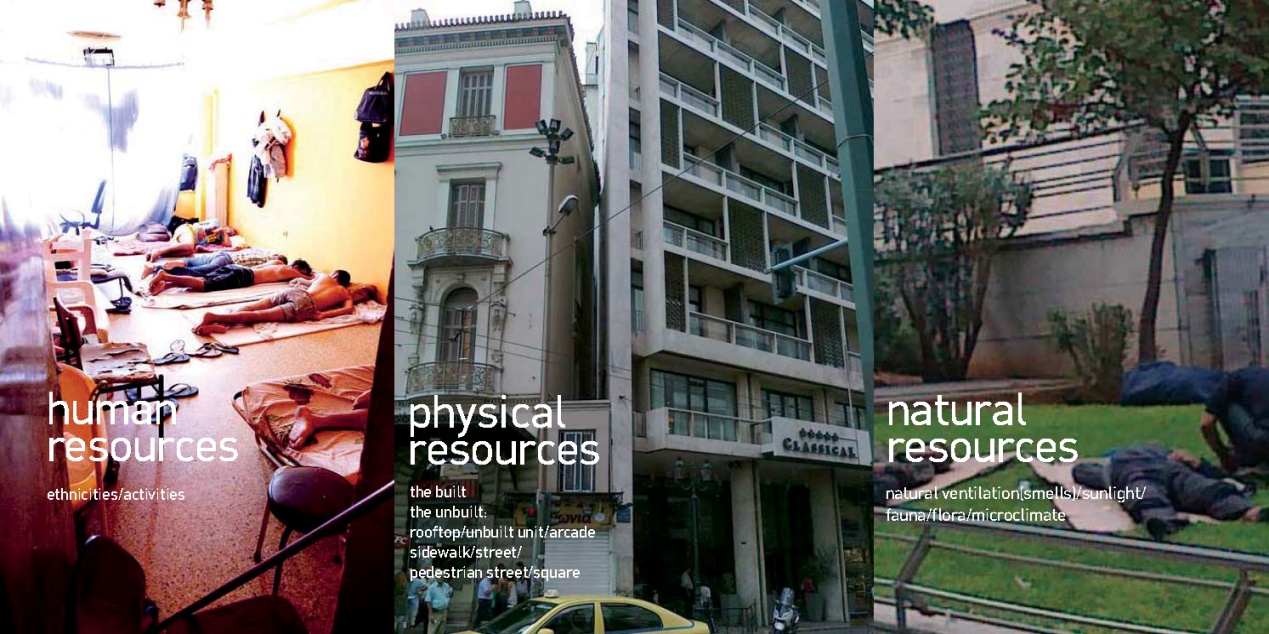
In the CityCommonResource: Athens_Gerani pilot study, SARCHA’s aim was to invent appropriate tools to map and explore the urban accumulation of city resources and to consider the potential for their resetting ‘in common’ and ‘bottom up’ by its inhabitants. Following a series of open calls, a SARCHA multidisciplinary research team of 28 associates, worked in the Gerani area from July to November 2010.
There was a major difficulty in mapping the human, physical and natural resources. The team decided to experiment by going back in time. Inventory cards were drafted for each category of resource and all entities were described exhaustively according to the well-known ten Aristotelian categories: Substance- Quantity – Quality – Relation – Place – Time – Position –State – Action – Affection. Video recordings and photographic material were also included in the inventory cards. For practical reasons, each researcher ‘adopted’ a city block and undertook the task to exhaustively map the three types of resources building by building, floor by floor.
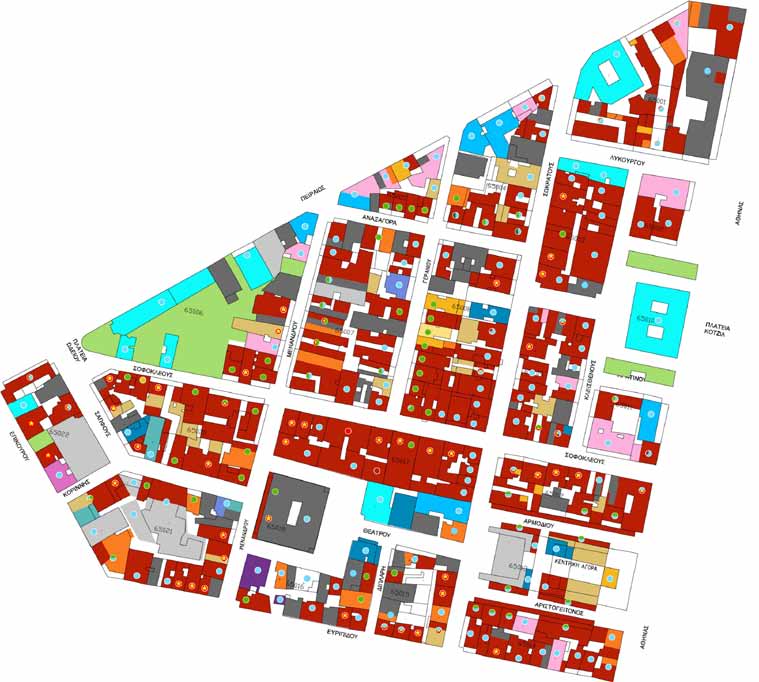
The major challenge for SARCHA was to imaging a way of resetting the existing resources, and tried to put forward appropriate tools for active involvement of inhabitants and owners alike in a new model of city ‘sharing’.
One of the main tools of the proposal of the CCR pilot study was the creation of an online platform with all the research open to citizens that can update the existing data and propose solutions and the Polypolis social game. Unfortunately the limited budget did not allow the continuum of the CCR approach.
POLYPOLIS A mind-shifting social game 2011-2012
The Polypolis game was initially conceived as a testing ground for the “CCR Athens Gerani” pilot study. But Polypolis can also be used as a tool to train/educate city inhabitants to cope ‘in common’ with issues that affect their every day.
Polypolis reverses the logic of ‘monopoly’ of ‘one winner takes all’, and adapts to the complex issues facing contemporary cities, experimenting with different ways in which the city resources can be held and mobilised in common by its inhabitants. Polypolis is a social role playing game that entails negotiations among different groups of players. The players apply city-intervention tools and exchange role-values to involve all other players in the process.
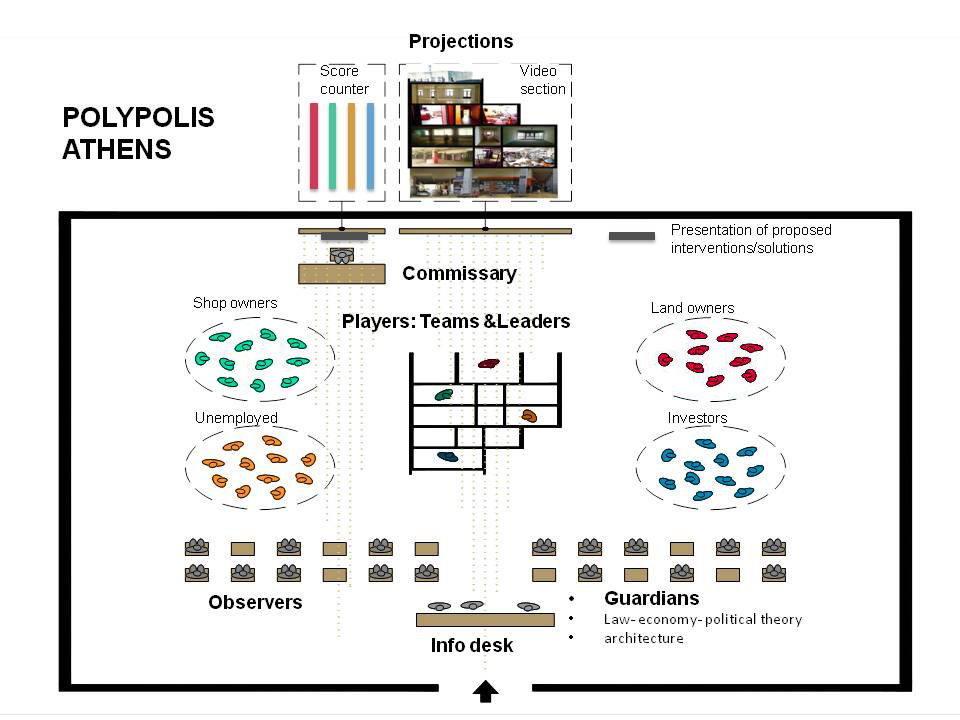
Following a series of open calls 38 SARCHA associates have been involved at the various stages of Polypolis development and more than 250 individuals have participated at Polypolis game testing in different venues (London Festival of Architecture 2012, Athens 2012, Rome 2011, Moraitis School Athens 2011, “p-public” festival Crete 2011).
Polypolis real effectiveness as a communication and training tool will be tested by its impact on the implementation of the “CCR Athens Gerani 2010” pilot study. SARCHA intent is to invite the Gerani inhabitants to play in their real life roles and discuss the reset of the area’s human, natural and physical resources.
Athens Travelers 2012
An open call invited young Athenians (18-32 years old) to plan and design city itineraries based on their individual experiences transferring their city knowledge/practice to their co-peer. The Athens Travelers program created an opening for the youths’ innovative force and aimed to bring together young people from different educational, social and cultural backgrounds and nourish mutual understanding, support and cooperation.
25 individuals in total of various backgrounds worked in groups and created 6 itineraries in the city and 100 individuals participated in the 6 Athens tours. For each itinerary a booklet was created with a map, photos and description of the different aspects of the itinerary.
The six itineraries:
- Migrants’ destiny/ destination: Greek migrants itineraries in the postwar Athens
- Degrees of Appropriation: Open City Spaces
- Who’s Who in the National Garden
- From one Hill to Another: Everyday Obstacles for Cyclists
- AfterTaste: Food Itineraries
- An Itinerary at the Limit: Adults only
Some thoughts before the end
The above projects, despite their differences in terms of methodology, face the same difficulties and issues.
First of all, the projects lack systemicity either because of a predetermined limited time frame (i.e. Reactivate Athens) or because of a restricted budget (Polypolis, and CCR). Moreover, an important issue is the inclusiveness of the projects. All the above initiatives tried to engage with different communities and residents using as communication tools open calls, websites, social media and in the case of Reactivate Athens a laboratory in the center of the city. The question that arises is in what degree the information about the project and the call for participation reaches people and communities that do not communicate through these networks or they are very cautious in participating in events / workshops / public discussions. A final point is the role of the researcher / designer in these kind of initiatives. The researcher takes the role of the facilitator between the residents / community members and the municipality / authority creating a relationship of mutual trust and consensus. But what happens when the initial consensus collapses by the respective authority? Where are the boundaries then between being a researcher and being an activist?
The above comments are just some initial questions to trigger a discussion between practitioners in Athens and abroad. Thus, the sharing of knowledge, experiences and methodology between the researchers, practitioners, academics, and community members is paramount through a common ground / platform of exchange.
